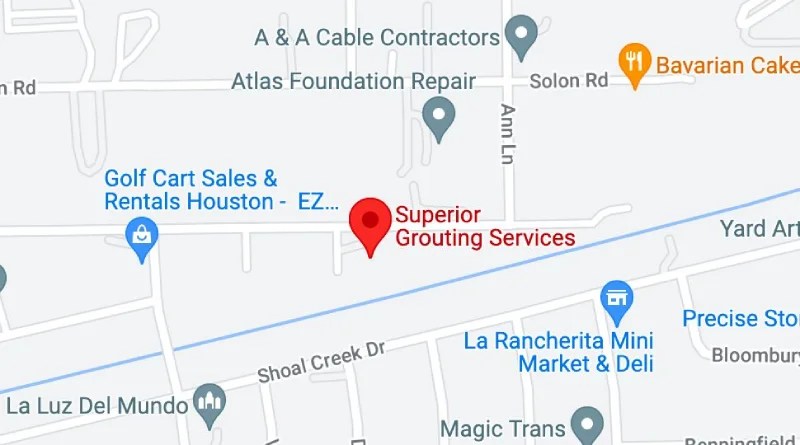The Hidden Cons of Self-Leveling Concrete You Should Consider
Self-leveling concrete has gained popularity for its ability to create smooth, even surfaces with relative ease. However, while it may seem like the perfect solution for many flooring issues, there are several hidden drawbacks that potential users should consider before making a decision.
Let’s take a closer look at these disadvantages to help you make an informed choice.
Understanding the Limitations of Self-Leveling Concrete
Before we dive into the specific cons, it’s essential to understand what self-leveling concrete is and how it works, particularly when applying the leveling compound. This material is designed to flow and settle into a flat surface, making it an attractive option for repairing uneven floors. However, the very characteristics that make it appealing can also lead to complications.
1. Thickness Constraints
One of the primary limitations of self-leveling concrete is its thickness requirement, which can affect the overall leveling of the rest of the property. Typically, it can only be applied in thin layers, ranging from 1/2 inch to 2 inches. This poses a challenge if you are dealing with significant height differences or if your existing concrete slab has substantial imperfections that need addressing before applying the leveling compound. In such cases, relying solely on self-leveling products may not yield the desired results.
2. Surface Preparation Necessities
Proper surface preparation is crucial when using self-leveling concrete. If the existing concrete surface is uneven, cracked, or damaged, these imperfections will likely show through the new layer. To achieve an even surface, you must clean the concrete thoroughly and address any holes or cracks beforehand. This process can be time-consuming and may require additional materials like primers or repair compounds.
3. Indoor Application Only
Self-leveling concrete is primarily intended for indoor use. Its formulation does not withstand outdoor conditions well, especially in areas subject to freeze-thaw cycles or excessive moisture exposure. If you’re considering this material for outdoor applications, such as patios or driveways, you may want to explore more durable alternatives.
4. Cost Implications
While self-leveling concrete can save time and labor costs compared to complete concrete replacement, it often comes with a higher upfront material cost than traditional concrete options. This expense can add up quickly, especially if multiple layers are needed or if extensive surface preparation is required.
5. Addressing Underlying Issues
Using self-leveling concrete does not resolve underlying structural problems within your flooring system. If there are issues like sinking concrete or foundational instability, simply pouring a new layer will not address these concerns and may lead to further complications down the line.
6. Cracking and Durability Concerns
If not mixed or applied correctly, self-leveling concrete can be prone to cracking or crumbling over time. Factors such as improper mixing ratios or rapid drying conditions can affect the final product's durability. Users should be aware that achieving a long-lasting finish requires careful attention during both mixing and application processes.
7. Limited Application Scenarios
Self-leveling concrete is best suited for specific environments where minimal wear and tear occurs. It may not be ideal for high-traffic areas such as garages or commercial spaces where heavy loads are common. In these situations, stronger alternatives should be considered to prevent premature failure of the surface.
Concrete Leveling Benefits
Despite its drawbacks, concrete leveling does offer several benefits that make it an attractive option for many users looking to achieve a smooth and level floor surface.
1. Quick Installation Process
One of the most significant advantages of using self-leveling products is the speed of installation. Once properly mixed and prepared, self-leveling compounds can be poured and allowed to settle quickly, minimizing downtime in your space.
2. Aesthetically Pleasing Finish
Self-leveling concrete provides a sleek and uniform appearance that enhances the overall look of your flooring. This finish can be particularly appealing in residential spaces where aesthetics matter.
3. Versatility in Applications
Self-leveling compounds can be used in various applications beyond just flooring; they can also serve as underlayments for tile or other flooring types, making them a versatile choice for many projects.
4. Minimal Maintenance Requirements
Once installed correctly and allowed to cure properly, self-leveling concrete requires minimal maintenance compared to other flooring options that may need periodic refinishing or repairs, making it a great choice for the rest of the property.
How Can Professional Concrete Leveling Help?
While DIY applications of self-leveling products are possible, hiring professionals can significantly enhance the outcome of your project. Here’s an overview of how professional grouting services can make a difference:
1. Expertise in Surface Preparation
Professionals have the experience necessary to prepare surfaces adequately before applying leveling compounds. They understand how to clean the concrete effectively and address any imperfections that could interfere with adhesion.
2. Proper Mixing Techniques
The correct mixing ratios of cement are crucial for achieving optimal results with self-leveling products. Professionals are trained in these techniques and know how to adjust mixtures based on environmental conditions.
3. Efficient Installation Process
With their expertise, professionals can complete installations more efficiently than most DIY attempts, reducing the risk of errors that could lead to costly repairs later on.
4. Long-Term Solutions
Professionals can assess underlying issues within your flooring system and recommend appropriate solutions beyond just applying self-leveling products. This holistic approach helps prevent future problems from arising, particularly when applying the leveling compound.
Tips for Using Self-Leveling Concrete
If you decide to proceed with self-leveling concrete despite its potential drawbacks, here are some tips to ensure a successful installation:
1. Prepare Your Surface Thoroughly
Before applying any leveling compound, clean the concrete surface meticulously using a vacuum or broom to remove dust and debris. If there are holes or cracks present, repair them prior to installation.
2. Use a Primer
Applying a primer before adding the floor leveler is essential for ensuring proper adhesion between layers. Make sure you choose a primer compatible with your leveling compound and allow it adequate time to dry completely before proceeding.
3. Follow Mixing Instructions Carefully
Pay close attention to mixing instructions provided by the manufacturer of your leveling product. The proper amount of water is critical for achieving an even consistency without compromising durability.
4. Monitor Moisture Levels
Moisture content in both the existing slab and air can significantly affect adhesion and curing times for self-leveling products. Ensure that moisture levels are within acceptable ranges before proceeding with installation.
5. Allow Adequate Curing Time
After pouring your self-leveling compound, let it dry completely according to manufacturer recommendations before adding any additional flooring materials on top of it.
6. Consider Environmental Conditions
Be mindful of temperature and humidity levels during installation; extreme conditions can interfere with curing times and overall performance of your finished floor.
By keeping these tips in mind and understanding both the benefits and challenges associated with self-leveling concrete, you can make informed decisions that meet your specific flooring needs while minimizing potential pitfalls along the way.
Conclusion
While self leveling concrete offers a quick and efficient solution for achieving a smooth concrete floor, it’s essential to be aware of its limitations and potential challenges. Proper surface preparation, careful mixing, and attention to moisture levels are critical when using a self-leveler or floor leveling compound.
Additionally, addressing any underlying issues is vital to prevent future voids or problems. For expert assistance in concrete leveling, repair, and installation, trust the professionals at Superior Grouting. We are committed to providing quality solutions for all your flooring needs. Schedule an estimate today to learn more about our services and agree to our terms!

